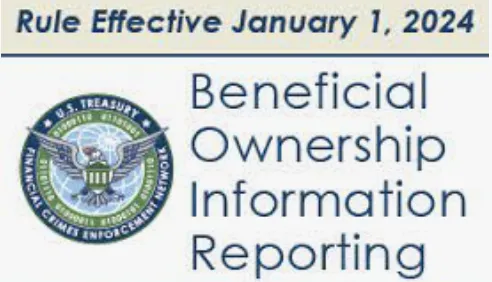Forming a foreign subsidiary can be an attractive way to expand your business into international markets. However, establishing a subsidiary overseas can come with a variety of challenges—from cultural differences to tax complications. To ensure your overseas expansion is a success, make sure you understand the legal, financial, and tax implications of foreign subsidiaries before you invest.
What is a Foreign Subsidiary?
A foreign subsidiary is a company that operates overseas and is owned by a larger company based in another country, commonly known as a parent or holding company. The IRS classifies foreign subsidiaries of US companies into three categories:
- If the parent company owns 100% of the foreign entity, it’s considered to be a wholly-owned subsidiary.
- If a parent company owns less than 100% but more than 50% of a foreign entity, it is a partially owned subsidiary.
- If the parent company owns 50% of the subsidiary, it is a joint venture.
Additionally, if a parent firm owns less than 50% of the foreign company, the foreign entity is considered an associate or affiliate.
How do Subsidiary Companies Work?
Foreign subsidiaries are considered separate legal entities from their parent firms. This distinction grants foreign subsidiaries the flexibility to target new markets, offer different products and services, or operate as a unique brand. Subsidiaries operating abroad can also offer tax benefits if the foreign company’s tax rates are lower than the parent company’s home country.
On the other hand, foreign subsidiaries can add time, cost, and complexity so it’s important to consider your options before expanding internationally.
Establishing a US Subsidiary of a Foreign Corporation
The Pros of Establishing a Foreign Subsidiary
There are many advantages to establishing a foreign subsidiary, including:
- Expanding into new markets: Opening a foreign subsidiary can give parent companies the ability to target new customers in overseas regions. Having a local presence helps build trust not only with buyers but also with foreign governments and business partners.
- Financial and tax benefits: Often, foreign subsidiaries can reap financial benefits that aren’t available to companies based overseas. Because they are treated as local businesses in the countries where they are located, foreign subsidiaries can take advantage of favorable regional tax rates, incentives, and regulations.
- Reduced risk for the parent company: Since foreign subsidiaries are separate entities, they can protect parent firms from liability when doing business internationally. The foreign subsidiary can also serve as a safety net for the parent business. If the foreign entity underperforms or the parent company needs funds, leadership can shutter the overseas firm to safeguard the core business.
The Cons of Establishing a Foreign Subsidiary
While establishing a foreign subsidiary of a US company comes with many benefits, there are drawbacks as well:
- Added cost and complexity: Setting up a foreign subsidiary can be time-consuming and costly. Maintaining compliance with local laws and regulations requires both up-front and ongoing investment to avoid excess risk. Similarly, should you need to close up shop, dissolving a foreign subsidiary can be a lengthy and complicated process.
- Cultural differences: Failing to consider cultural differences when establishing a foreign subsidiary can create challenges in day-to-day operations, hiring, managing staff, marketing to customers, and more.
Legal Requirements and Formation Process
There are two possible routes to forming a foreign subsidiary:
- Form a new company: The most popular option is to create a new company. If the new company’s mission is the same as the parent company, the foreign subsidiary can be formed without shareholder approval by the Board of Directors or other competent body. If the missions of the two entities differ, the formation of the foreign subsidiary will require shareholder approval. Once you have established the path to create your foreign subsidiary, you can then choose a legal structure based on the options available in the country. Next, follow the steps to complete the necessary legal and financial requirements to set up the business.
- Acquire an existing company: The second option to set up a foreign subsidiary is to invest in or purchase an existing company abroad. Acquiring an existing company offers the advantage of having operations, customers, and staff already established. However, this option also comes with risk. Issues may be lurking under the surface that aren’t apparent at first glance. Be sure to have legal and financial experts audit the company to reveal as much insight as possible before investing.
Key Benefits of Setting up a US Subsidiary
Creating a US subsidiary of a foreign corporation comes with many advantages. Beyond gaining access to potentially lucrative new markets, US-based subsidiaries can offer tax savings, access to a skilled labor pool, and limited liability. The United States’ 21% tax rate for subsidiaries is lower than the 30% that the branch of a foreign company would pay, as well as the corporate tax rates in many other countries. Additionally, creating a separate entity insulates the parent company from risk and simplifies payroll taxes for local employees.
Navigating the Complexities of Foreign Subsidiary Tax
Regardless of your business structure or location, filing and paying taxes can be a complicated affair. This is especially true for foreign subsidiaries and their parent companies. Before investing in an international company, make sure you understand the tax implications for both your existing business and the overseas firm.
US Taxation of Foreign Subsidiaries
As foreign companies, the income earned by subsidiaries located overseas is not subject to US taxation. However, foreign subsidiaries may still have US reporting requirements. Common US tax reporting requirements for foreign subsidiaries include:
Form 5472: Information Return of a 25% Foreign-Owned US Corporation or a Foreign Corporation Engaged in a US Trade or Business
This form helps the IRS understand the relationship between the foreign subsidiary and the US-based parent company. Form 5472 may be required for 25% foreign-owned US companies or foreign entities that do business with US-based corporations.
Foreign subsidiaries will need to file Form 5472 if they have a reportable transaction during the tax year. Reportable transactions include loans, rent, royalties, interest, sale of goods, or other payments between foreign and US entities.
Failure to file Form 5472 can come with a $25,000 fine, so it’s important to stay on top of this US tax requirement for foreign subsidiaries.
Form 1042: Annual Withholding Tax Return for US Source Income of Foreign Person
When a US company makes fixed or determinable, annual or periodical (FDAP) payments, such as rent, royalties, interest, or dividends, to a foreign subsidiary or parent company, US taxes will need to be withheld at a rate of 30%. US companies and subsidiaries must use Form 1042 to report FDAP payments to foreign individuals, parent companies, or other entities.
W-8BEN and W-8BEN-E: Certificate of Foreign Status of Beneficial Owner for United States Tax Withholding and Reporting (Individuals and Entities)
US tax treaties may help foreign subsidiaries avoid the required withholdings on FDAP payments. To claim these tax benefits, foreign subsidiaries should use Form W-8BEN and W-8BEN-E.
Form 1120-F: US Income Tax Return of a Foreign Corporation
Foreign subsidiaries use Form 1120-F to report any US income, gains, and losses, as well as claim deductions, credits, and treaty-based protections via Form 8833. Using Form 1120-F, foreign subsidiaries can calculate their US tax liability or any refunds owed.
Tax Forms for US Parent Companies of Foreign Subsidiaries
While their overseas affiliates may be able to skip the hassle of filing a US tax return, US-based parent companies must pay taxes on the revenue they receive from foreign subsidiaries. Along with the standard federal and state tax returns, parent companies of foreign subsidiaries will need to file extra tax forms to report on various aspects of their relationship with the overseas company.
Form 5471: Information Return of US Persons With Respect to Certain Foreign Corporations
The purpose of Form 5471 is for US persons to report their ownership in a foreign subsidiary to the IRS. The goal of the form is to prevent Americans from hiding assets in offshore firms. Any US citizen, company, trust, or estate with at least 10% ownership in a foreign corporation must file Form 5471.
Form 926: Return by a US Transferor of Property to a Foreign Corporation
US citizens and entities that exchange or transfer property—including cash—to a foreign subsidiary will need to report these transactions to the IRS via Form 926. Qualifying transactions include cash transfers of over $100,000 or any transaction that results in owning more than 10% of a foreign company’s stock.
Form 8992: US Shareholder Calculation of Global Intangible Low-Taxed Income (GILTI)
Shareholders who own 10% or more of a foreign subsidiary are required to file Form 8992. The global intangible low-taxed income (GILTI) provision stipulates that US companies pay a minimum tax on intangible income—from intellectual property such as patents, trademarks, and copyrights—earned in foreign countries. The tax is intended to prevent US companies from shifting intangible assets to foreign subsidiaries in tax havens to evade the US’s 21% corporate tax rate. Typically, GILTI tax rates generally range from 10.5% to 13.125%.
FinCEN 114: Foreign Bank Account Reporting (FBAR)
FBAR is not a US tax requirement; rather, it is a requirement of the United States Treasury Department. Any US person who has a combined value of $10,000 in foreign accounts at any point in the year must file FBAR. This includes accounts you own, have a financial interest in, or have signatory authority over. Investors in foreign subsidiaries should keep careful track of foreign accounts to which they have access so they don’t miss this important filing obligation. FBAR penalties start at $10,000 per violation.
Form 8938: Statement of Specified Foreign Financial Assets
Similar to FBAR, Form 8938 is an informational tax form intended to alert the IRS to foreign assets held by US persons to stop tax cheats from hiding offshore accounts. Form 8938 requirements vary based on where the taxpayer is located:
- Taxpayers living in the US with a combined value of foreign assets over $75,000 at any time during the year (or $50,000 on the last day of the year) will need to file Form 8938
- Taxpayers living outside of the US with a combined value of foreign assets over $300,000 at any time during the year (or $200,000 on the last day of the year) will need to file Form 8938
Tax Treaties and Their Role in Foreign Subsidiary Taxation
If the foreign subsidiary is located in a country that has a tax treaty with the United States, this agreement can help the overseas and US companies avoid double taxation. Depending on the country, tax treaties can reduce or even eliminate US taxation on income from sales, dividends, and interest payments. Similarly, in some cases, claiming the protections of a tax treaty can exempt foreign subsidiaries from the required tax withholdings for FDAP payments.
The Impact of US Tax Reforms on Foreign Subsidiaries
Recent US tax reform, specifically the Tax Cuts and Jobs Act of 2017, has had a major impact on the requirements for US parent companies and foreign subsidiaries.
Prior to the law, US companies generally did not have to pay taxes on earnings from foreign subsidiaries until they were repatriated as dividends to the United States. Although, some anti-deferral provisions did exist to prevent American companies from hiding income overseas to evade US taxes.
In 2017, the new tax laws expanded these anti-deferral provisions to include global intangible low-taxed income (GILTI). GILTI includes any income earned from intangible assets—such as patents, trademarks, and copyrights—by foreign subsidiaries of US companies. GILTI income is considered repatriated in the year it is earned. Therefore, taxes need to be paid immediately at a minimum rate of 10.5%.
Along with these changes, the IRS has increased scrutiny of foreign subsidiaries and US companies with foreign transactions. Consequently, foreign subsidiaries and their US parent companies should ensure that they fully understand their US tax obligations and are prepared to comply with the filing requirements to avoid an audit or costly penalties.
4 Strategies for Tax Optimization with Foreign Subsidiaries
Establish the Subsidiary in a Low-Tax Country
Setting up a foreign subsidiary in a tax haven can help shareholders reduce their tax liability while gaining access to international markets. While certain US tax obligations may still apply, foreign subsidiaries in low-tax jurisdictions can generally avoid high American corporate tax rates. Popular tax havens for foreign subsidiaries include Bermuda, the British Virgin Islands, the Cayman Islands, Hong Kong, Jersey, Luxembourg, The Netherlands, Singapore, Switzerland, and the United Arab Emirates.
While US parent companies will need to pay taxes on revenue from shares in foreign subsidiaries located in tax havens, they can reduce their taxable income by reinvesting these funds into the subsidiary.
Take Advantage of Tax Treaty Benefits
Establishing a foreign subsidiary in a county that has a tax treaty with the United States can help protect corporations and shareholders from double taxation while lowering your overall tax bill. Tax treaties define types of taxable income, when tax credits can be applied, what earnings are tax-exempt, as well as specific tax and withholding rates.
For foreign subsidiaries, it’s important to review the tax treaty’s policies toward the types of income you expect to generate, as well as tax withholdings. Tax withholding rates will apply to the dividends disbursed from foreign subsidiaries to their US parent companies. Choosing a country with a favorable tax treaty that offers low tax and withholding rates can help foreign subsidiaries increase their profits and cash flow.
Claim Foreign Tax Credits
Foreign tax credits can be used to offset your US tax bill based on the amount of tax paid abroad. Foreign subsidiaries and their parent companies can use foreign tax credits to avoid double taxation on several types of income taxes, including GILTI.
While foreign tax credits can be a great tool for foreign subsidiaries to reduce their tax bills, there are limits on the amount of foreign paid taxes that can be claimed as a credit. Taxpayers must calculate the foreign tax credit limit for each type of income: passive, general, foreign branch, and GILTI.
In most cases, foreign tax credits that were not used because of these limits can be carried back or forward to other tax years. However, foreign tax credits with respect to GILTI cannot be carried back or forward.
Work with an International Tax Expert
Ultimately, the amount of taxes you’ll pay depends heavily on the specific structure, location, and operations of your foreign subsidiary. Working with an international tax accountant can help minimize taxes for your controlled foreign corporation from the start. Choosing the right business structure for your overseas entity, setting up shop in a jurisdiction with favorable tax laws and a US Tax Treaty, and selecting the correct options on all your US tax filings can help maximize your tax savings in the short and long term.
Give Your Foreign Subsidiary the Tax Advantage It Needs with Cleer Tax
In the past five years, Cleer Tax’s team of expert tax accountants has helped over 5,000 startups on five continents meet their US tax obligations and maximize their savings. Our CPAs and IRS Enrolled Agents specialize in helping entrepreneurs navigate the murky waters of international tax law with confidence.
At Cleer Tax, we understand the importance of maintaining 100% accurate books and minimizing tax bills so you can continue to invest in the growth of your burgeoning business. Our foreign subsidiary tax services are designed specifically to meet your unique tax needs and uncover the maximum tax savings for your multinational company.
Have additional questions? Book a consultation with one of our tax experts, or feel free to contact us.
Frequently Asked Questions
Why would a company set up a foreign subsidiary?
Often, companies set up foreign subsidiaries to gain access to lucrative international markets, take advantage of local tax and financial benefits, and protect the parent company from liability and risk.
How can I determine if my foreign subsidiary is a Controlled Foreign Corporation (CFC)?
When US persons own 50% or more of a foreign corporation, and each individual owns at least 10%, it is considered to be a controlled foreign corporation.
What are the types of foreign subsidiaries?
There are three main types of foreign subsidiaries:
- Wholly-owned foreign subsidiaries: A wholly-owned subsidiary is owned 100% by the parent company.
- Partly-owned foreign subsidiaries: Partly-owned subsidiaries occur when the parent company, which holds the majority voting shares, shares ownership with another party.
- Joint venture foreign subsidiaries: Joint venture subsidiaries are co-owned by two companies, each of which owns 50% of the stock.
Can I deduct expenses related to my foreign subsidiary on my US tax return?
Foreign subsidiaries can deduct business expenses on their US tax returns, provided that the expenses are considered ordinary and necessary to the company’s operations.
What is the difference between a subsidiary and a franchise?
A subsidiary is a legally independent entity owned by a parent company. A franchise is a business model in which the franchisor licenses its operations, products, or intellectual property to privately owned small businesses, known as franchisees. Unlike subsidiaries, franchise relationships are not defined by ownership.






